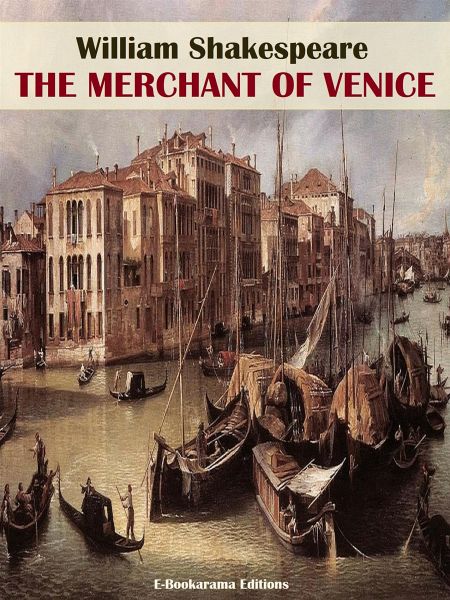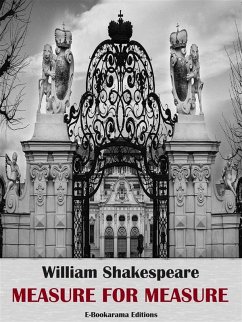
The Merchant of Venice (eBook, ePUB)

PAYBACK Punkte
0 °P sammeln!
Written by William Shakespeare sometime between 1596 and 1598, "The Merchant of Venice" is classified as both an early Shakespearean comedy (more specifically, as a "Christian comedy") and as one of the Bard's problem plays; it is a work in which good triumphs over evil, but serious themes are examined and some issues remain unresolved. In "The Merchant of Venice", Shakespeare wove together two ancient folk tales, one involving a vengeful, greedy creditor trying to exact a pound of flesh, the other involving a marriage suitor's choice among three chests and thereby winning his (or her) mate. A...
Written by William Shakespeare sometime between 1596 and 1598, "The Merchant of Venice" is classified as both an early Shakespearean comedy (more specifically, as a "Christian comedy") and as one of the Bard's problem plays; it is a work in which good triumphs over evil, but serious themes are examined and some issues remain unresolved. In "The Merchant of Venice", Shakespeare wove together two ancient folk tales, one involving a vengeful, greedy creditor trying to exact a pound of flesh, the other involving a marriage suitor's choice among three chests and thereby winning his (or her) mate. Antonio, the Merchant of Venice, lends three thousand ducats to his friend Bassanio in order to assist him in his wooing of the wealthy and beautiful Portia of Belmont, an estate some distance from Venice. Antonio's own money is tied up in business ventures that depend on the safe return of his ships from sea, so he borrows the money from Shylock, a Jewish moneylender whom he has previously insulted for his high rates of interest. Shylock lends the money against a bond. Failure to repay the loan on the agreed date will entitle Shylock to a pound of Antonio's flesh...
Dieser Download kann aus rechtlichen Gründen nur mit Rechnungsadresse in A, B, BG, CY, CZ, D, DK, EW, E, FIN, F, GR, HR, H, IRL, I, LT, L, LR, M, NL, PL, P, R, S, SLO, SK ausgeliefert werden.













